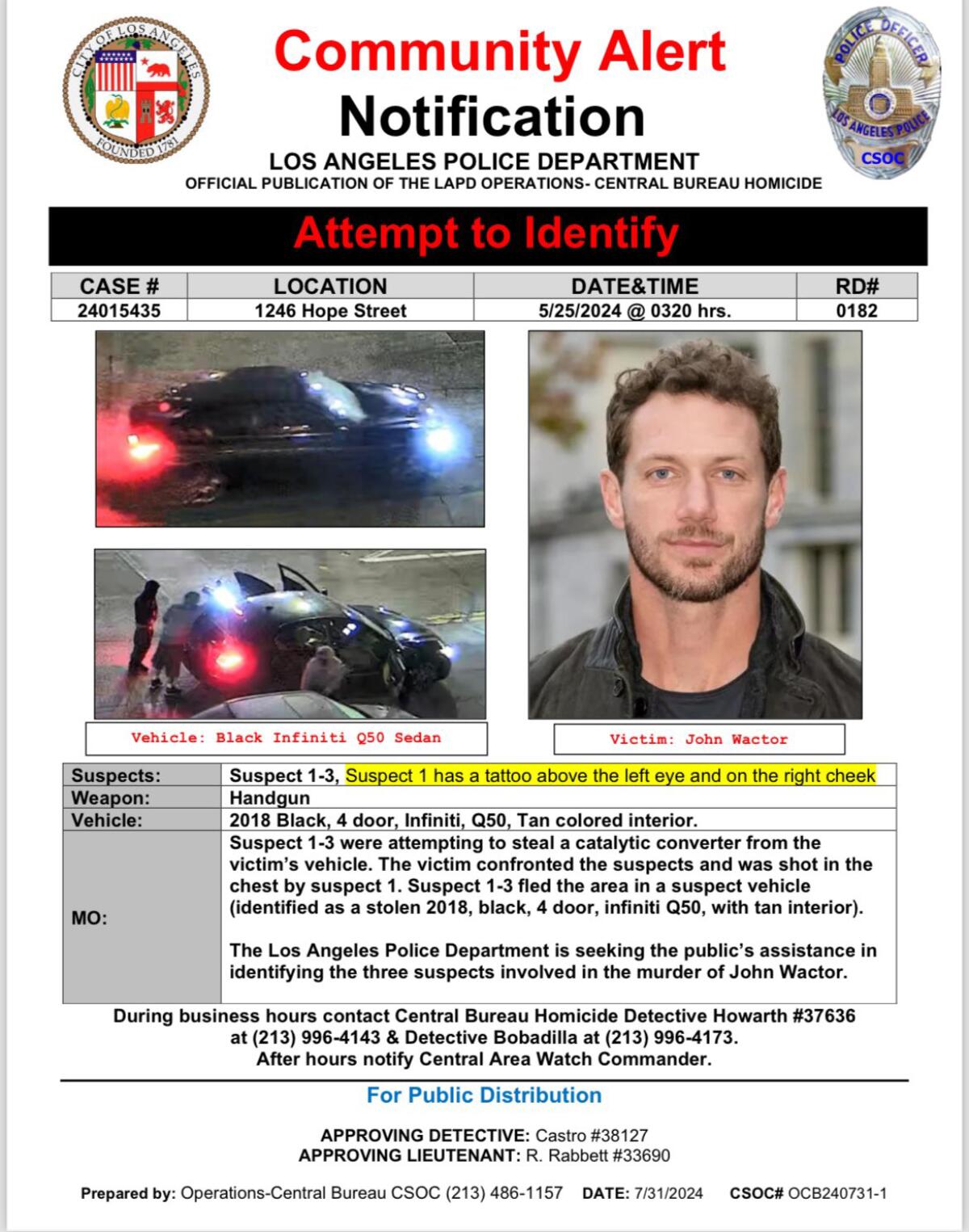Johnny Wactor slaying: LAPD investigation focuses on gang members tied to catalytic converter thefts

- Share via
An investigation into the fatal shooting of “General Hospital” actor Johnny Wactor in downtown Los Angeles is focusing on gang members tied to catalytic converter thefts, law enforcement sources familiar with the probe told The Times.
After reviewing videos and interviewing witnesses, homicide detectives with the Los Angeles Police Department have focused on the distinct facial tattoos of the shooter, one of three men who authorities say jacked Wactor’s car on Hope Street near Pico Boulevard to steal its catalytic converter before shooting and killing him May 25.
Investigators have released grainy images of the suspects and their stolen getaway vehicle, hoping to garner further evidence confirming the men’s identities, according to law enforcement sources not authorized to discuss the probe.
Security images of the suspects and their getaway car involved in the shooting of ‘General Hospital’ actor Johnny Wactor were released by L.A. police.
Wactor had just finished a late-night bartending shift at the nearby Level 8 bar when he and co-worker Anita Joy were walking to his car and interrupted the thieves.
Wactor first thought his car was being towed, Joy said. After realizing that wasn’t the case, he asked the men to leave, showing his open hands to indicate he wasn’t a threat. Nevertheless, he was shot about 3:20 a.m., she said, at close range. A security guard from the bar said he found Joy with Wactor, who was mortally wounded, and called 911.
After the shooting, the suspects then fled north on Hope Street in a stolen getaway car described as a 2018 black four-door Infiniti Q50 with a tan interior, police said.
According to detectives, the man who shot Wactor has a tattoo above his left eye and another on his right cheek.
On Sunday, police released grainy security images of the three suspects and of the getaway car driving down the street.
Police tried to pull fingerprints from Wactor’s car and link the crime to any nearby catalytic converter thefts.
Thieves target catalytic converters because they contain precious metals, including rhodium, palladium and platinum. They can sell for hundreds of dollars to auto parts suppliers or scrapyards, where they can be melted down and the valuable metals extracted.
Thefts of catalytic converters skyrocketed in California during the COVID-19 pandemic. That prompted new state laws that make it illegal for recyclers to buy the parts from anyone other than the vehicle’s legal owner or a licensed dealer. Penalties were increased for buyers who fail to certify that a catalytic converter wasn’t stolen.
Anyone with information about the shooting is asked to call Central Bureau homicide detectives at (213) 996-4143 or at (213) 996-4173.
More to Read
Sign up for Essential California
The most important California stories and recommendations in your inbox every morning.
You may occasionally receive promotional content from the Los Angeles Times.











